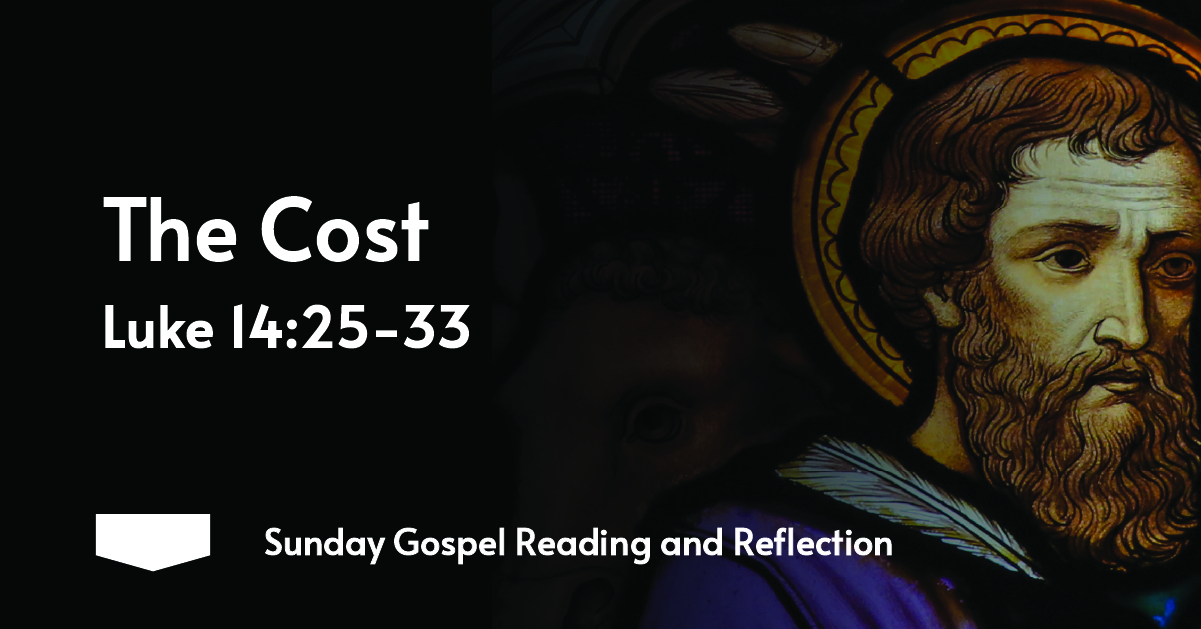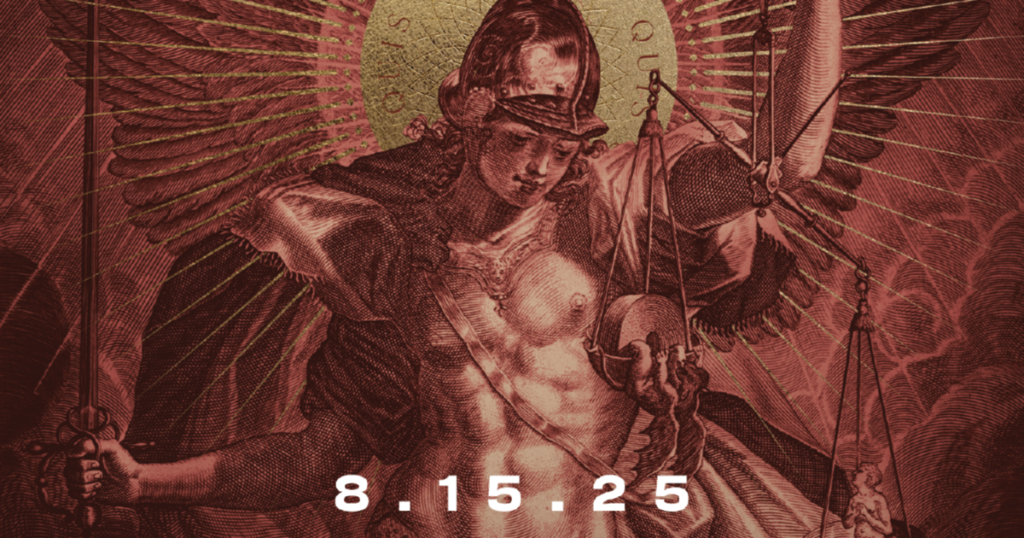Sunday, September 4th, 2022
Reading
Great crowds were traveling with Jesus, and he turned and addressed them, “If anyone comes to me without hating his father and mother, wife and children, brothers and sisters, and even his own life, he cannot be my disciple. Whoever does not carry his own cross and come after me cannot be my disciple. Which of you wishing to construct a tower does not first sit down and calculate the cost to see if there is enough for its completion? Otherwise, after laying the foundation and finding himself unable to finish the work the onlookers should laugh at him and say, ‘This one began to build but did not have the resources to finish.’ Or what king marching into battle would not first sit down and decide whether with ten thousand troops he can successfully oppose another king advancing upon him with twenty thousand troops? But if not, while he is still far away, he will send a delegation to ask for peace terms. In the same way, anyone of you who does not renounce all his possessions cannot be my disciple.” Luke 14:25-33
Reflection
Isn’t Jesus’ opening message strange? He says, “If any one comes to me without hating his father and mother, wife and children, brothers and sisters, and even his own life, he cannot be my disciple.” People in the crowd who knew him or who had heard him before were probably confused. They were probably thinking, “So…wait. Jesus said he wants us to hate people now? He wants us to hate our parents? Aren’t our parents the same ones that God commands us to honor in the Ten Commandments?” (See Exodus 20:12; Deuteronomy 5:16.) It seems like Jesus is contradicting the Law. But, of course, he is not doing that. Instead, he is speaking in a very strong manner to get his listeners’ attention.
The word that Jesus uses for “hate” (Greek: miséō) can also, by extension, mean: “to love less.” This translation of the word is also the best way to understand some other passages in the Bible. For example, think of the story of Jacob and his two wives (see Genesis 29:15-30). Recall how he was tricked into marrying both of Laban’s daughters, Leah and Rachel, even though he only wanted to marry his younger daughter, Rachel. Right after the narrative recounts this in verse 30, it then goes on to state: “When the Lord saw that Leah was unloved [loved less], he made her fruitful…” (Genesis 29:31). Therefore, our Lord is not commanding us to hate others. On the contrary, he is asking us to get our priorities straight. In other words, we ought to love God above all things, even more than our closest family ties and our most intimate human relationships.
In addition to setting our priorities right, we need to endure until the end. Being a disciple means you carry your cross to the end. It would be a great tragedy if you did not persevere. You would be like an unfinished building or an inadequate, poorly devised battle plan. You would start beautifully but end in ugly misfortune. Au. The Falcons did not have a good plan, and they lost the game in the end, even though they had a huge lead at halftime. You must have a good plan and get your priorities right. Put God first every single day.
Today, ask for the grace to “love less” the things which are not God. All goods are in God; love him through everything. In your prayer, spend a few minutes telling God how much you love him.





